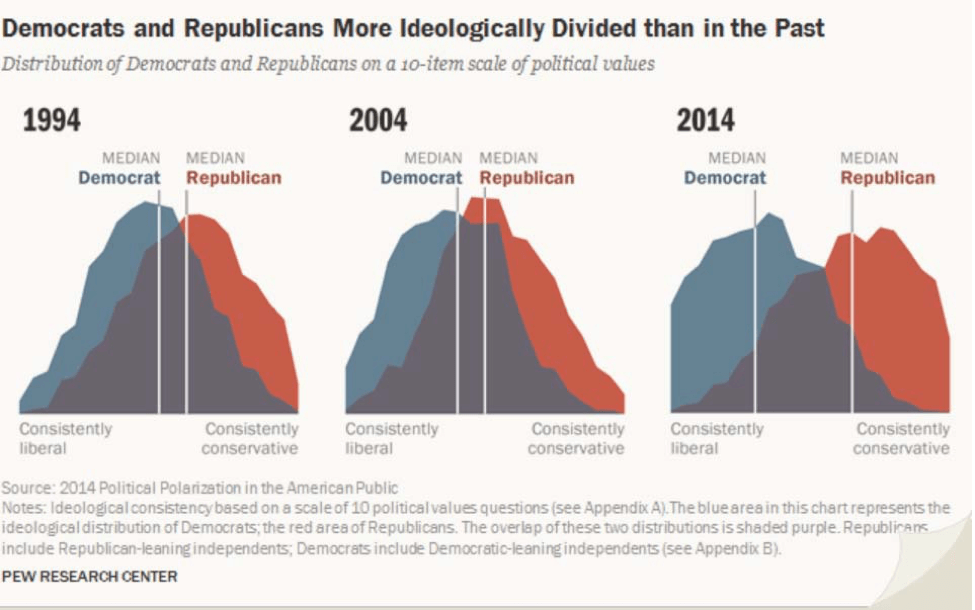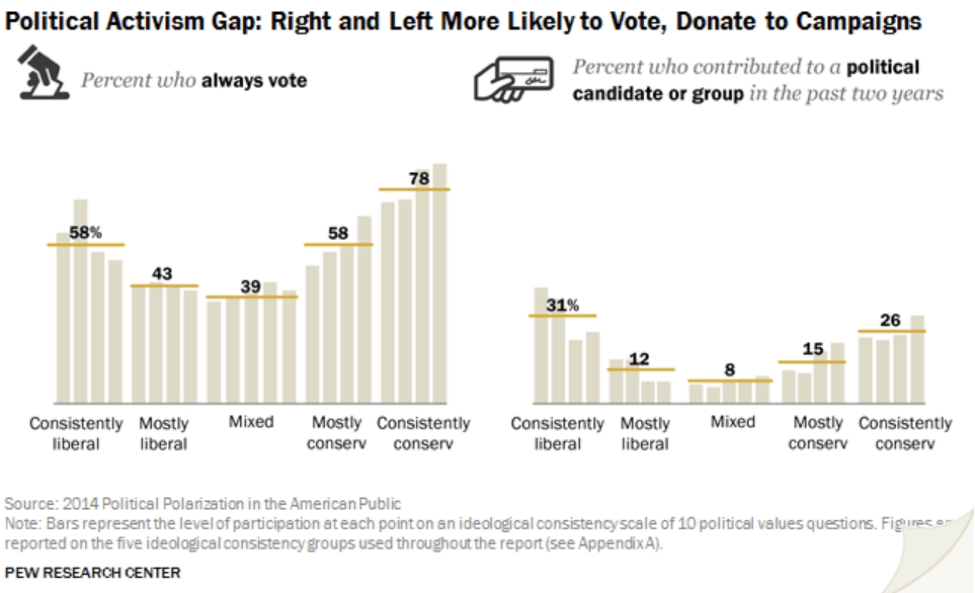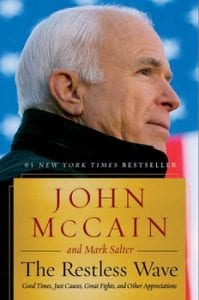In the summer of 2018, while battling brain cancer, Arizona Senator John McCain released a book in the midst of a particularly chaotic and toxic political atmosphere. The book, The Restless Wave, serves as a powerful meditation on the future of America as an identity and an ideal; the critical need for compromise and civil discourse; and the need for the propagation of spiritual values such as humility, grace, courage, and justice both among our political leaders and the American people.
McCain’s parting advice cautions against the excesses of partisan entrenchment, righteous and arrogant discourse, and a xenophobic and exclusive definition of America. His principled guidance should be carefully considered by all Americans concerned about the unprecedented and unsettling denigration of truth, unity, civility, and community in our country.
A Crisis of Discourse
During his more than thirty years of service in the United States Senate, McCain has earned a reputation as a champion of compromise and bipartisan engagement. Meanwhile, both among his colleagues on Capitol Hill and general American population, political affiliation has served as a powerful force in the division of American society. This division is most evident in the decline of the quality of discourse – particularly on social media. A heightened emphasis on self-expression, the application of algorithms that continually validate the beliefs of those who express themselves online, and an omnipresent addiction to mobile devices the world over are all factors which contribute to the degeneration of the quality of discourse and the abandonment of the pursuit of truth, understanding, and perspective.
This psychological revolution in our systemic misperception of our social fabric present dangers of enormous proportions to our political system and sense of community. This era of abundant, global, and instant electronic discourse certainly serves as a force for international understanding and cooperation, but it also presents unsettling realities currently manifesting in which the very conceptions of truth and fact are being adulterated like never before.
McCain perfectly captures this decline in the quality of discourse: “We are secluding ourselves in ideological ghettos. We don’t have to debate rationally or even be exposed to ideas that contradict ours. We have our own news sources. We exchange ideas mostly or exclusively with people who agree with us, and troll those who don’t. Increasingly, we have our own facts to reinforce our convictions, and any empirical evidence that disputes that is branded fake. That’s a social trend that’s going to be very hard to turn around….”[1] In fact, these divisions based on political affiliation are so severe that Stanford political scientist Shanto Iyengar found partisan identities to be stronger than racial, ethnic, linguistic, religious, and gender identities.[2] Interestingly, these partisan identities are often based on negative views of the opposing party.[3]

This severe division in the social fabric of the United States has implications even for the smallest units of cohesion – including dating and family life. NPR reported that support or dislike of President Donald Trump is an absolute deal-breaker on many online dating platforms.[4] Similarly, a growing number of Americans find intergenerational family gatherings like Thanksgiving to be a source of stress and frustration because of vastly different political affiliations and underlying values. Schools of thought on how to deal with these intra-family tensions differ, with some experts advocating non-political conversations to “keep the peace” while others believe that superficial conversations that do not relate to the core values that shape political affiliation will create a repressed frustration in themselves and will ultimately lead to the weakening of family relationships.

Moving Forward
There is no reason to believe that there will be improvements in the quality of discourse and in the degree of righteousness and arrogance during upcoming elections. In fact, the compounding effects of ever-increasing online self-expression, social media manipulation, a media industry focused on riling up voters rather than objectively reporting developments, and the empowerment of radical and off-center politicians will almost certainly result in more aggressive, destructive, and toxic election seasons. It will be critical for individual Americans, during these periods, to find healthy psychological and spiritual practices of re-centering, detachment, gratitude and service.
Perhaps the most uncomfortable characteristic of this crisis of discourse is the harmful practice of ascribing character to one’s political affiliation. McCain eloquently wrote, “We need to recover some perspective about how much someone’s politics is a testament to their character. When did politics become the principle of only attribute we use to judge people? Republicans and Democrats can be good neighbors, loving parents, loyal Americans, and decent human beings. I don’t remember another time in my life when so many Americans considered the partisan affiliation a test of whether that person was entitled to their respect.”1
Of course, it is important to understand the deep-seated reasons for these severe political divisions exist and – more importantly – the barriers to cross-party understanding and compromise. Our current crisis of partisan entrenchment may be characterized by unprecedented righteousness and arrogance in discourse, but it is rooted in fundamental differences in core values and paradigms. These deeper contrasts in our views of the world are difficult to bridge because they relate to differences in the most intrinsic concerns of life – including our vision for humanity and our country, making sense of an increasingly interconnected and diverse world, and our understanding of the basic spiritual and existential nature of an individual. Bridging these differences is a tall order – and appears impossible. However, for the welfare of humanity, for the continued well-being of our country, and for our own spiritual and psychological health, it is critical that we must try and understand (and serve, love, and befriend) “the other.” Albert Einstein said, “Peace cannot be kept by force; it can only be achieved by understanding.”[1]
A Need for Consultation and Compromise in Politics
Effective governance in societies diverse in values must be based, first and foremost, on compromise. This is certainly true in the United States. McCain wrote, “I’m a champion of compromise in a country of 300 million quarrelsome, vociferous souls. There is no other way to [effectively] govern an open society.” 1 The honest exchange of ideas and a commitment to work with individuals of differing values for common ideals is a virtue emphasized in faiths and cultures throughout history.
However, the inspiring, passionate, and revolutionary messages of political extremists seem so much more romantic and attractive to voters. This is partly because compromise and moderation, in itself, is not a soul-stirring value. It is hard to rile people up about working together under our current framework. It may also be because the principles of consultation and compromise has always been so poorly applied in our political system that Americans are frustrated with those in power. However, it should be noted, a commitment to problem-solving and honest dialogue is the only way to sustain a government that works for everyone. McCain described compromise-centered legislation: “Muddling through, hashing out policy agreements that thrill no one but are acceptable to most, is a useful achievement in a republic.” 1 Perhaps the solution lies in a paradigm shift in which values such as unity, community, respectful dialogue, and teamwork are inculcated into the zeitgeist of our time.
The critical need for understanding and collaboration instead of deepening political entrenchment is demonstrated by the increasing diversity of the United States with every passing year. This diversity not relates to race, religion, values, and culture. As obsolete and unjust power structures in the United States and worldwide are breaking down, as systemically oppressed populations finally become empowered, as greater understanding of our ecological responsibility is made clear, the consciousness of our country is searching for a common identity, coherent values, and united purpose on which to build future structures. During this time of collective soul-searching, the ability of our country to achieve those values that should bring us all together – peace, community, prosperity and health – can only be achieved through understanding and dialogue.
Leadership & Character
During this process of individual and collective reflection, we must shed the righteousness and obstinacy that appears to characterize all of American politics and look within ourselves to cultivate those timeless values that characterize an enlightened human in every faith – humility, kindness, compassion, responsibility, and community. We must also look for those values in our leaders, and look to them as reflections of our higher selves.
McCain wrote, “Here’s my unsolicited advice to the American voter. If a candidate for Congress pledges to ride his [or her] white horse to Washington and lay waste to all the scoundrels living off your taxes, to never work or socialize or compromise with any of them, to make an example of them and then somehow get them to bow to their will and the superiority of their ideas, don’t vote for that guy. It sounds exciting, but it’s an empty boast and a commitment to more gridlock… If a candidate modestly promises to build relationships on both sides of the aisle, to form alliances which promote their ideas, to respect other points of view, and split differences where possible, to make measurable progress on national problems, ask that candidate to run for president. Their humility and honesty commend them for the job.” 1 This humble posture of learning and leading is known as servant leadership, and it was taught repeatedly by Christ: “And whoever wants to be first must be your slave – just as the Son of Man did not come to served, but to serve, and to give his life as a ransom for many.”[2]
Abdul-Baha, one of the central figures of the Baha’i Faith, taught the importance of identifying an American president with these characteristics of servant leadership. He wrote, “The president must be a man who does not insistently seek the presidency. He should be a person free from all thoughts of name and rank; rather, he should say, ‘I am unworthy and incapable of this position and cannot bear this great burden.’ Such persons deserve the presidency.
If the object is to promote the public good, then the president must be a well-wisher of all and not a self-seeking person. If the object, however, is to promote personal interests, then such a position will be injurious to humanity and not beneficial to the public.”[3] These exhortations of character and humility do not only apply to our political leaders, but also ourselves. As the political landscape becomes ever more tumultuous and the ceaselessness of the 24-hour news cycle and social media continue to overwhelm the hearts and minds of many Americans, it is critical that individuals find healthy practices in their own lives so that they are spiritually / psychologically nourished and able to serve themselves, their families, and their communities.
Discovering the Future of America
This period of uncertain and self-questioning currently characterizing the United States also applies to individual American families and communities. The United States strives to be and sometimes is an incredible example of the unity of humanity and the equality of all peoples. This country ushered forth to humanity unprecedented principles relating to the inherent dignity and nobility of the individual while making revolutionary contributions in the sciences and the arts. This country has also promulgated tremendous injustices including the institution of slavery and the genocide of indigenous populations. Many of these wrongs have not be corrected, but rather appear to systemically perpetuate themselves through the future.
During this period of self-questioning about this country’s role in the direction for its people and its leadership in the world, Americans must choose between reliving the horrors of the past or creating a country that truly serves as a demonstration of humanity’s unity and character. Whether we like it or not, the world has been built for the past century in the image of the United States, and sometimes this has resulted in great advances for market liberalization, human rights and development – but deep, concerning harm also lies in our country’s conscience.
The future and identity of America is inextricably bound with that of the world. After all, nearly 25% of the world’s GDP is the U.S. economy, alone, and individuals who identify as “American” have roots throughout the world. McCain exhorted the United States to not shy away from ever-increasing interconnectedness and globalization: “To fear the world we have organized and led for three-quarters of a century, to abandon the ideals we have advanced around the globe, to refuse the obligation of international leadership… is unpatriotic.” 1
“America The Beautiful,” Coca-Cola 2014 Super Bowl Advertisement
Conclusion
Our current crisis of discourse during this period of collective-soul searching should be a wake-up call. Not only should we be critical and concerned about the political extremism, denigration of truth, and degeneration of discourse characterizing our country, but we must also look to our own selves. We must reflect on our assumptions and tone, our adversarial posture, our methods of expression, and the effects of social media on our mental health.
With regards to our political system, we must refresh our vision for the future of governance in this country. After all, we cannot sustainably and meaningfully commit to an everlasting and unceasing fight – we must recognize the brokenness of the status quo and combat the division itself rather than the adversary. This is a tall order because the current partisan division gets as the core of our humanity and values – but responding with righteousness, arrogance, and condescension cannot be the long-term answer.
In both our leaders and ourselves, character matters. Honesty, integrity, community and respect were all taught by the sacred teachers – including Buddha, Krishna, and Moses – and these values continue to be applicable and essential to the well-being of our country and our world. These everlasting values are greater than our current dynamics and must not be forgotten in an era of obstinate political tribalism. McCain says of human rights: “Human rights are not our invention. They don’t represent standards from which particular cultures or religions can be exempted. They are universal. They exist above the state and beyond history.”1 All of these virtues exist above the state and beyond history – and it is critical that we do not collectively lose sight.
In the world today, there is a need for a higher loyalty – one that transcends country, party, race, or religion. We must all reflect more deeply on our purpose in life and the relationship of that purpose to the well-being of all of humanity, to whom we are inextricably bound. McCain quotes a poem, For Whom the Bell Tolls (the namesake of Hemingway’s novel), to illustrate the nobility and meaningfulness of binding our lives to the welfare of all of humanity. The poem exhorts the individual to be “part of the main” – to devote a life bound to the welfare of humanity and be a channel of service, love and responsibility in our communities.
No man is an island entire of itself; every man
is a piece of the continent, a part of the main;
if a clod be washed away by the sea, Europe
is the less, as well as if a promontory were, as
well as any manner of thy friends or of thine
own were; any man’s death diminishes me,
because I am involved in mankind.
And therefore never send to know for whom
the bell tolls; it tolls for thee.
-John Donne[4]
References
- From a speech to the New History Society (14 December 1930), reprinted in “Militant Pacifism” in Cosmic Religion (1931); also found in The New Quotable Einstein by Alice Calaprice, p. 158.
- Matthew: 20:27-28
- https://centenary.bahai.us/vignette/presidentialelection
- http://www.famousliteraryworks.com/donne_for_whom_the_bell_tolls.htm
- McCain, John, “The Restless Wave: Good Times, Just Causes, Great Fights, and Other Appreciations”
- https://news.stanford.edu/2017/08/31/political-party-identities-stronger-race-religion/
- http://www.pewresearch.org/fact-tank/2018/03/29/why-do-people-belong-to-a-party-negative-views-of-the-opposing-party-are-a-major-factor/
- https://www.npr.org/2017/02/14/515179534/when-dating-in-the-era-of-divisive-politics-both-sides-stick-to-themselves4
About the Author:
 Sharath Patil is a fellow on economics and trade at the University of Maryland’s Baha’i Chair for World Peace. He is a second-year law student at the University of Oregon School of Law and has a bachelor of science in supply chain management from Arizona State University. He has significant academic and professional experience in international trade, global logistics, and commercial diplomacy. Patil is passionate about the ability of sustainable and resilient global supply chains to serve as a force for development and a bridge for peace.
Sharath Patil is a fellow on economics and trade at the University of Maryland’s Baha’i Chair for World Peace. He is a second-year law student at the University of Oregon School of Law and has a bachelor of science in supply chain management from Arizona State University. He has significant academic and professional experience in international trade, global logistics, and commercial diplomacy. Patil is passionate about the ability of sustainable and resilient global supply chains to serve as a force for development and a bridge for peace.

